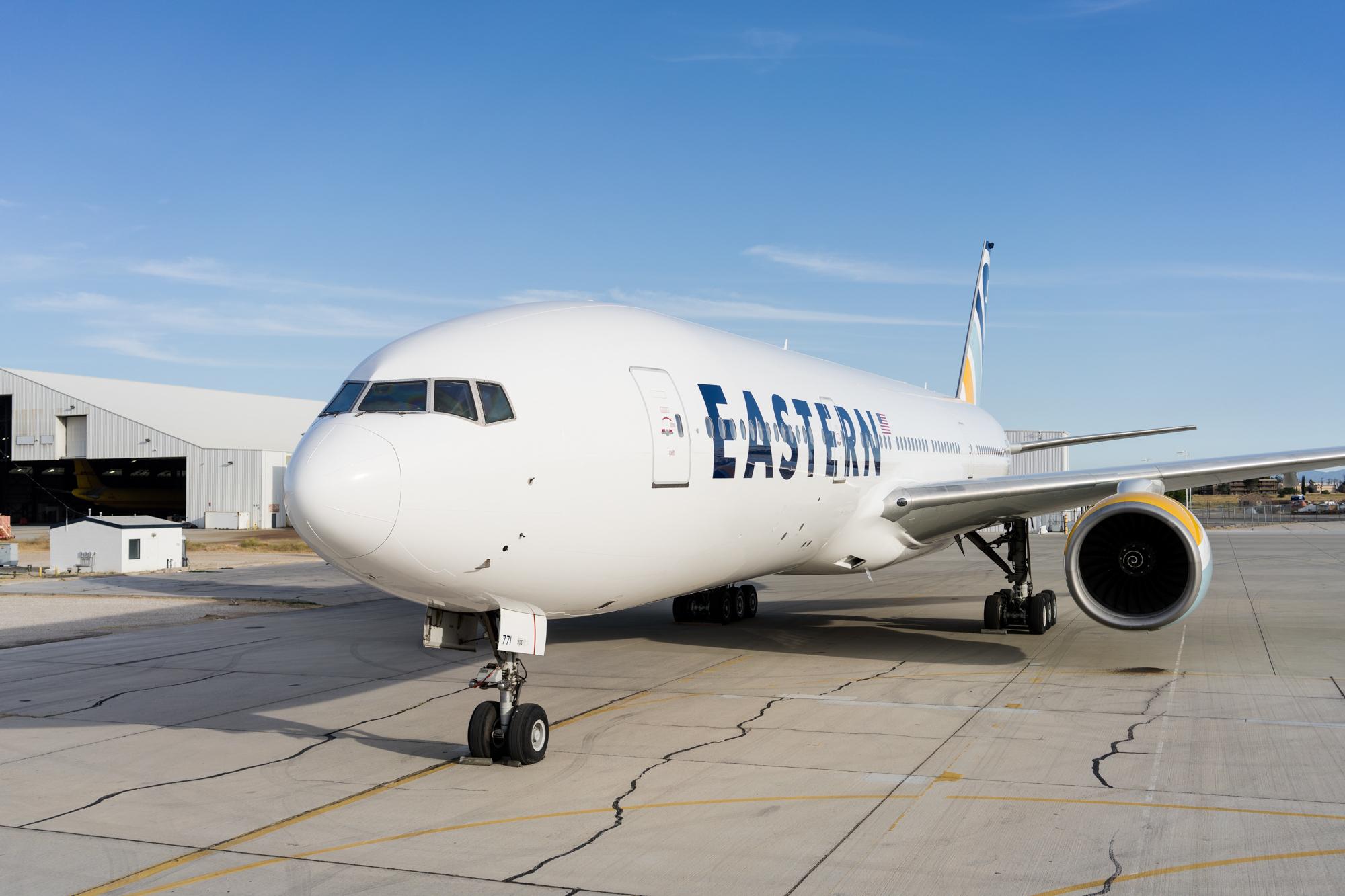Eastern Eyes Express Freight Market With 777 Conversion Program, Cargo Division

Credit: Eastern Airlines
Eastern Airlines will launch a dedicated freighter business with a fleet of Boeing 777s modified using the company’s internally developed cargo conversion program tailored for volume-driven express operators, the company revealed Sept. 1. The U.S.-based carrier, which operates a fleet of 10 767s on...
Subscription Required
This content requires a subscription to one of the Aviation Week Intelligence Network (AWIN) bundles.
Schedule a demo today to find out how you can access this content and similar content related to your area of the global aviation industry.
Already an AWIN subscriber? Login
Did you know? Aviation Week has won top honors multiple times in the Jesse H. Neal National Business Journalism Awards, the business-to-business media equivalent of the Pulitzer Prizes.

